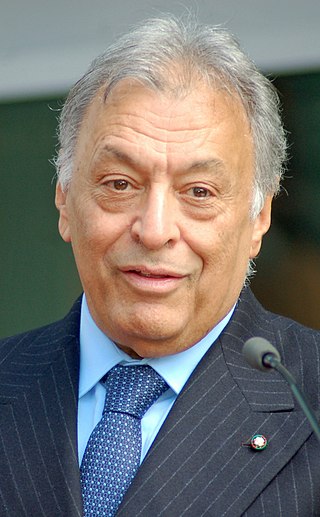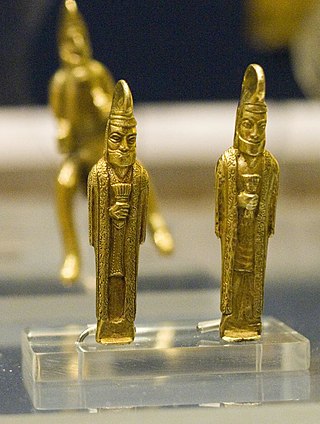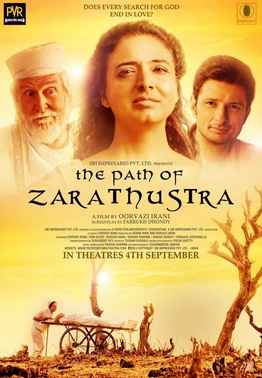
Zoroastrianism, also called Mazdayasnā or Beh-dīn, is an Iranian religion centred on the Avesta and the teachings of Zarathushtra Spitama, who is more commonly referred to by the name Zoroaster. Among the world's oldest organized faiths, its adherents exalt an uncreated, benevolent, and all-wise deity known as Ahura Mazda, who is hailed as the supreme being of the universe. Opposed to Ahura Mazda is Angra Mainyu (𐬀𐬢𐬭𐬀⸱𐬨𐬀𐬌𐬥𐬌𐬌𐬎), who is personified as a destructive spirit and the adversary of all things that are good. As such, the Zoroastrian religion combines a dualistic cosmology of good and evil with an eschatological outlook predicting the ultimate triumph of Ahura Mazda over evil. Opinions vary among scholars as to whether Zoroastrianism is monotheistic, polytheistic, henotheistic, or a combination of all three. Zoroastrianism shaped Iranian culture and history, while scholars differ on whether it significantly influenced ancient Western philosophy and the Abrahamic religions, or gradually reconciled with other religions and traditions, such as Christianity and Islam.

The Parsis or Parsees are a Zoroastrian community in the Indian subcontinent. They are descended from Persian refugees who migrated to the Indian subcontinent during and after the Arab-Islamic conquest of Iran in the 7th century, when Zoroastrians were persecuted by the early Muslims. Representing the elder of the Indian subcontinent's two Zoroastrian communities, the Parsi people are culturally, linguistically, and socially distinct from the Iranis, whose Zoroastrian ancestors migrated to British-ruled India from Qajar-era Iran. The word Parsi is derived from the Persian language, and literally translates to Persian.

Zarathushtra Spitama, more commonly known as Zoroaster or Zarathustra, was an Iranian religious reformer who challenged the tenets of the contemporary Ancient Iranian religion, becoming the spiritual founder of Zoroastrianism. Variously described as a sage or a wonderworker; in the oldest Zoroastrian scriptures, the Gathas, which he is believed to have authored, he is described as a preacher and a poet-prophet. He also had an impact on Heraclitus, Plato, Pythagoras, and the Abrahamic religions, including Judaism, Christianity, and Islam.

Zubin Mehta is an Indian conductor of Western classical music. He is music director emeritus of the Israel Philharmonic Orchestra (IPO) and conductor emeritus of the Los Angeles Philharmonic.

Vishtaspa is the Avestan-language name of a figure appearing in Zoroastrian scripture and tradition, portrayed as an early follower of Zoroaster, and his patron, and instrumental in the diffusion of the prophet's message. Although Vishtaspa is not epigraphically attested, he is – like Zoroaster – traditionally assumed to have been a historical figure, although obscured by accretions from legend and myth.

Yazata is the Avestan word for a Zoroastrian concept with a wide range of meanings but generally signifying a divinity. The term literally means "worthy of worship or veneration", and is thus, in this more general sense, also applied to certain healing plants, primordial creatures, the fravashis of the dead, and to certain prayers that are themselves considered holy. The yazatas collectively are "the good powers under Ahura Mazda", who is "the greatest of the yazatas".
Iranian philosophy or Persian philosophy can be traced back as far as to Old Iranian philosophical traditions and thoughts which originated in ancient Indo-Iranian roots and were considerably influenced by Zarathustra's teachings. According to the Oxford Dictionary of Philosophy, the chronology of the subject and science of philosophy starts with the Indo-Iranians, dating this event to 1500 BC. The Oxford dictionary also states, "Zarathustra's philosophy entered to influence Western tradition through Judaism, and therefore on Middle Platonism."

The Reverend James Hope Moulton was a British non-conformist divine. He was also a philologist and made a special study of Zoroastrianism.

Peter Nigel Terry was an English stage, film, and television actor, typically in historical and period roles. He played Prince John in Anthony Harvey's film The Lion in Winter (1968) and King Arthur in John Boorman's Excalibur (1981).

Zoroastrianism is considered to be the oldest religion still practiced in Iran. It is an Iranian religion that emerged around the 2nd millennium BCE, spreading through the Iranian plateau and eventually gaining official status under the Achaemenid Empire in the 6th century BCE. It remained the Iranian state religion until the 7th century CE, when the Arab conquest of Persia resulted in the fall of the Sasanian Empire to the nascent Rashidun Caliphate. Over time, the persecution of Zoroastrians led to them becoming a religious minority amidst the Islamization of Iran, as many fled east to take refuge in India. Some of Zoroastrianism's holiest sites are located in Iran, such as Yazd.

Ajooba (transl. Wonder) is a 1990 superhero film, produced and directed by Shashi Kapoor and co-directed by Soviet filmmaker Gennadi Vasilyev. An Indian-Soviet co-production, it is loosely based on Arabic folklore such as One Thousand and One Nights. The film had a Russian language version released in the Soviet Union, Черный принц Аджуба, in 1990, before its Indian release in 1991. The film starred Amitabh Bachchan as the titular superhero Ajooba, along with Rishi Kapoor, Dimple Kapadia, Sonam, Shammi Kapoor, Dara Singh, Saeed Jaffery and Amrish Puri in pivotal roles.Made on a budget of ₹80 million, it was the most expensive Indian film made until then.

Royce Hall is a building on the campus of the University of California, Los Angeles (UCLA). Designed by the Los Angeles firm of Allison & Allison and completed in 1929, it is one of the four original buildings on UCLA's Westwood campus and has come to be the defining image of the university. The brick and tile building is in the Lombard Romanesque style, and once functioned as the main classroom facility of the university and symbolized its academic and cultural aspirations. Today, the twin-towered front remains the best known UCLA landmark. The 1800-seat auditorium was designed for speech acoustics and not for music; by 1982 it emerged from successive remodelings as a regionally important concert hall and main performing arts facility of the university.

A mobed, mowbed, or mobad is a Zoroastrian cleric of a particular rank. Unlike a herbad (ervad), a mobed is qualified to serve as celebrant priest at the Yasna ceremony and other higher liturgical ceremonies. A mobed is also qualified to train other priests.

Jaan is a 1996 Hindi-language action drama film directed by Raj Kanwar and produced by Ashok Ghai. The film stars Ajay Devgn, with Twinkle Khanna, Amrish Puri, Shakti Kapoor and Suresh Oberoi. It was theatrically released in United States on 31 March 1996 and India as well as other countries on 17 May 1996. The film's soundtrack was composed by Anand–Milind. Upon release, it was commercially successful, grossing ₹17.20 crore (US$2.0 million) worldwide. The film was declared a "super hit" at the box office.
Adi Pherozeshah Marzban (1914–1987) was an Indian Gujarati Parsi playwright, actor, director, broadcaster known for his efforts in modernizing Parsi theatre. He was awarded the Padma Shri, the fourth highest civilian award of India in 1964 and Sangeet Natak Akademi Award in 1970.

Criticism of Zoroastrianism has taken place over many centuries not only from the adherents of other religions but also among Zoroastrians themselves seeking to reform the faith.

The Path Of Zarathustra is a 2015 Indian magic realism film directed by Oorvazi Irani. It stars Oorvazi Irani, Tom Alter, Rushad Rana and Shishir Sharma. The screenplay of the film is written by the author Farrukh Dhondy. The film was released on 4 September 2015.

Zoroastrian prayer covers a wide range of invocations and utterances, aimed at connecting the faithful with Ahura Mazda or other Zoroastrian divinities. They may be performed in private, in public or at a fire temple.












